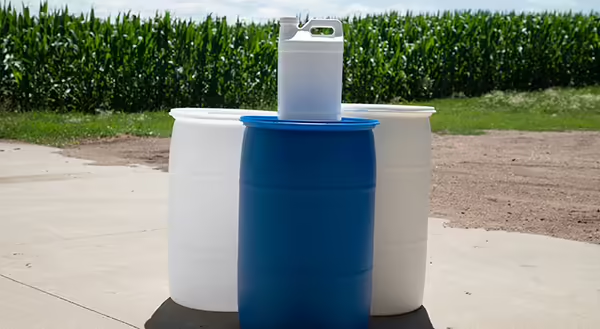
Recently, I participated in The Pesticide Stewardship Alliance’s 25th annual conference. The Ag Container Recycling Council (ACRC) had an exhibitor booth and explained what the ACRC does. In their 33 years of service to U.S. growers and custom applicators, they have collected over 257,000,000 pounds of triple-rinsed, one-way rigid HDPE plastic containers, 55-gallons and smaller, commonly used in agricultural pesticides, animal health, specialty pest control, micronutrient, fertilizer and/or adjuvant products. Containers are inspected, ground up on site or back at the contractor’s facility, and then recycled into range of end-use products approved by the ACRC, such as agricultural drainpipe, highway and agricultural fence posts, landscape edging, and plastic lumber. That’s a lot of containers that have been saved from landfills. In fact, ACRC’s efforts have saved more than 1,285,000 cubic yards of landfill space. Also, it’s great that they have found new life for the recycled material!
The ACRC is a nonprofit organization whose mission is to promote, educate and facilitate the collection and recycling of agricultural chemical containers. ACRC is composed of 56 member companies. The ACRC has regional contractors who handle the recycling efforts in their respective states. For more information about ACRC and a map with contact information for the contractors, visit their website at AgRecycling.org. The contractor for Illinois is G. Phillips and Sons, LLC. They can be reached at (248)961-3360 or by visiting their webpage. Recycling through G. Phillips and Sons is generally available at no cost. Besides serving as a regional contractor for ACRC, G. Phillips and Sons also coordinates recycling activities with the Illinois Department of Agriculture and several individual chemical manufacturers. G. Phillips and Sons is the ACRC’s regional contractor for 18 other states as well. Even though ACRC’s program only collects 55-gallons and smaller, G. Phillips and Sons also collects intermediate bulk containers (IBCs), also know as caged totes.
Be sure to check out the ACRC website as it features much useful information. There are videos on proper procedures for rinsing out small containers as well as large drums. Both are available in English and Spanish. Additionally, a check list of steps for your container is provided. The container requirements page includes helpful pictures of eligible containers and equally important - NOT eligible containers. The container check list contains a short summary and can be printed easily. The resources page contains free posters that can be hung in the workplace to serve as excellent recycling reminders.
In addition, The Pesticide Stewardship Alliance (TPSA) is an organization that promotes recycling pesticide containers. TPSA is an organization made of government organizations from local, state, and federal levels; research and education institutions; and corporations. TPSA promotes stewardship of pesticide use for every process involved in their usage, from manufacturing to the recycling of empty containers. For more information about TPSA, visit their website. The conference I attended had speaker sessions divided into two primary tracks, one geared more for pesticide safety educators and one geared more for those in the container recycling industry. The agenda was robust with great information. As a pesticide safety educator, you can likely guess what session I stayed in. However, if I could have been in two places at once, I would have loved to have learned more about pesticide disposal issues.
Every year, the Illinois Department of Agriculture offers a free recycling program for agrichemical containers. The schedule has not been posted yet, however, you can learn more about the program at their website. At the bottom of the page, there is an inspection checklist to aid in preparing containers for recycling.
The University of Illinois Pesticide Safety Education Program will share the schedule details in their blog and newsletter once they are known.
Photo Credit: ACRC
Sources: ACRC Brochure, website, and presentations. Special thanks to Leigh O’Neill and Mark Hudson with ACRC.
ABOUT THE AUTHORS: Michelle Wiesbrook provides subject matter expertise and training in pesticide safety with an emphasis on horticultural weed science. She serves as the Illinois Pesticide Review newsletter editor, collecting and organizing material.